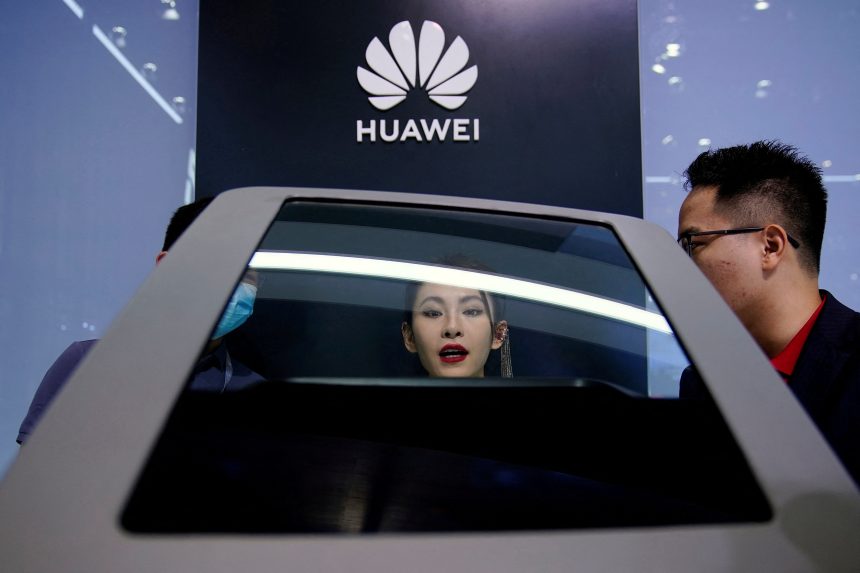In just four years, Huawei has emerged as a major player in the smart car industry, overcoming the devastating effects of trade sanctions on its smartphone business and creating the most talked-about driver assistance system at the Beijing auto show.
This week’s expo features two enormous booths from Huawei Technologies, and at least seven Chinese manufacturers are promoting its Qiankun advanced driving assistance system (ADAS) as the most advanced system available.
In Huawei’s first agreement with a foreign automaker, even Germany’s Volkswagen will install Qiankun on its Audi Q6L e-tron, which is being manufactured in China and is destined for China, when the car is launched in 2025, two individuals with knowledge of the situation told Reuters.
Makoto Uchida, the CEO of Nissan, was also intrigued when he went to a Huawei stand and heard officials discuss the technologies designed for the Seres vehicle that was on show. According to a Nissan representative, Uchida was checking out exhibits and had no comments regarding any potential Huawei collaboration.
According to Audi, it doesn’t discuss its suppliers. Huawei did not answer a request for comment right away.
It has stated that it wants to compete with companies like Bosch, Denso, and Continental as a leading automotive supplier for the intelligent EV era.
“We have developed alongside Huawei for the past three years, and everyone can see our accomplishments. Chairman Zhang Xinghai of Dongfeng-backed Seres, whose Aito ranked sixth among new energy brands in China in the January-March quarter, stated, “We will continue to work side by side for the next three years and more.”
The industry’s rapid expansion has made Huawei’s market entry easier. Legacy automakers are finding it difficult to keep up with EV producers like BYD, which are offering cars for as little as $20,000 with one-time premium amenities.
While state-owned giants have found it difficult to innovate and now rely on companies like Huawei to increase their competitiveness, private EV manufacturers like BYD have demonstrated their capacity to build high-tech capabilities internally, according to analysts.
With the help of Huawei’s ADAS, state-owned companies Changan, Dongfeng, and BAIC are retaliating with new electric vehicle names like Avatr, VOYAH, and Arcfox.
The fact that it can produce its own chips adds to its allure, as the managers noted that further trade restrictions brought about by decoupling would affect China tactics.
Automakers “may choose to collaborate with Chinese companies to offer driving automation for automobiles aimed at the Chinese market.” According to investor and corporate counsel Evangelos Simoudis, Huawei can take advantage of these opportunities while other ADAS providers, like Bosch, might not have them in China the same way they have in Europe or the US.
According to three managers and one other, Huawei’s significant involvement in the creation and marketing of Seres Aito and other vehicles has sparked worries among industry participants that Huawei is not just a supplier but also a competitor.
This year, the company also had a shortage of computing components, which caused the delivery of premium models including the Chery Luxeed S7, Changan Avatr 12, and Seres Aito M9 to be delayed.
Outside of China, Huawei may once more be subject to trade restrictions as the United States started looking into Chinese cars this year for potential national security risks, mainly because of worries about “connected” automotive technology.
Not a single one of Huawei’s partner automakers has said that they will be exporting cars featuring Huawei technology.
Huawei also displayed LIDAR, optical sensors, telematics sensors using GPS and BeiDou, vehicle control units that calibrate ride and suspension, and an audio system integrated into head rests so passengers can listen to different music without disturbing one another at the auto show.
Shayne Heffernan









